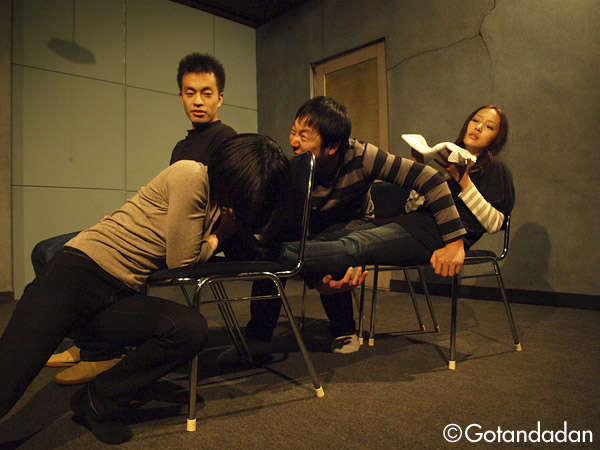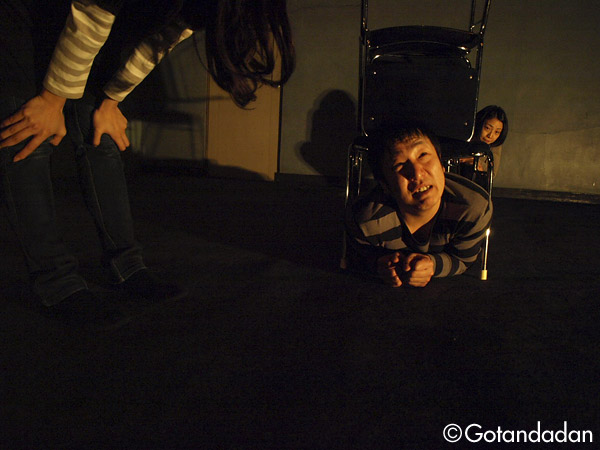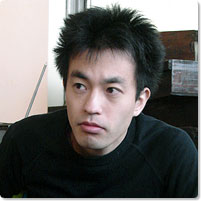

Gotandadan 36th production
Suteru Tabi
(Nov 2008 at Atelier Helicopter) ©Gotandadan
Data
:
Premiere: 2009
Length: approx. 80 min.
Acts, scenes: 1
Cast: 4 (2 men, 2 woman)


